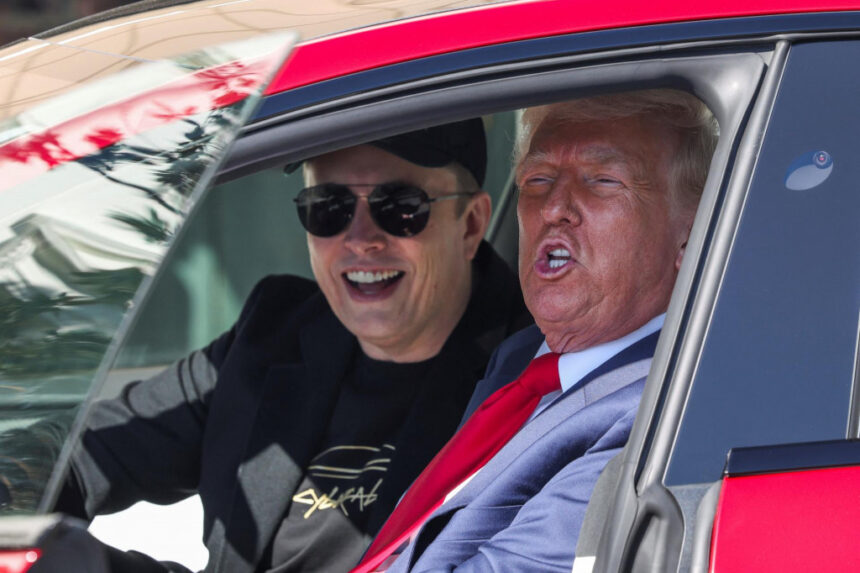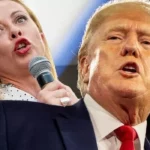Summary & Additional Remarks by Geopolist | Istanbul Center for Geopolitics:
In moments of major political upheaval, people instinctively reach for a guide—something to help make sense of the new reality. The United States may be approaching such a moment. Over the past several years, and with growing speed since Donald Trump’s return to the presidency, American political institutions and long-held democratic norms are showing signs of strain. The story unfolding isn’t just about shifting policies or partisan bickering. It’s about something deeper and more dangerous: the potential transformation of the U.S. from a democratic republic into a kleptocracy—a government in which corruption isn’t the exception, but the operating principle.
For many Americans, this term may still feel foreign, something that applies to far-off authoritarian regimes, not to the world’s oldest constitutional democracy. But what if the architecture for kleptocracy is already being assembled here—quietly, deliberately, and in plain sight?
We’ve already seen a number of moves that signal concern. Since Trump’s election, watchdog institutions have been dismantled or weakened. Key anti-corruption efforts have been shuttered. Seventeen inspectors general—officials installed to monitor government agencies for misuse of power—have been fired. Investigations under laws like the Foreign Corrupt Practices Act have been paused. In their place, loyalty and political alignment have become more important than expertise or ethical standards.
Take Elon Musk, for example. Now at the helm of a newly created government body—the Department of Government Efficiency, or DOGE—Musk sits in a uniquely powerful position: simultaneously acting as a government official and a major federal contractor. Critics argue this is a textbook conflict of interest—one that would raise red flags in any functioning oversight system. His statements about rooting out fraud in agencies like USAID may sound like accountability at first glance, but they also echo a pattern: discredit the bureaucracy, centralize power, and pave the way for consolidating influence.
To understand what’s happening, it helps to look at different forms of corruption. Petty corruption is the kind of thing you’d see in movies—bribes to get a license or cut a line. But that’s not the real threat here. What we’re facing is grand corruption: when elites reshape public institutions to enrich themselves and entrench their power. When these networks become deeply embedded—across politics, business, media, even the legal system—we enter the territory of kleptocracy.
Kleptocracy doesn’t always announce itself with a bang. It grows like mold—quietly, until it’s everywhere. It’s not just about stealing money. It’s about eroding the structures that are supposed to serve the public: independent courts, professional civil servants, a free press. And when those structures collapse, it’s not just the rich getting richer. It’s the average citizen finding that their quality of life slowly, then suddenly, deteriorates.
What’s particularly worrying in the American context is that these developments are layered on top of already historic levels of inequality. As of 2024, the top 1% of Americans hold nearly $50 trillion in wealth. The bottom half? Less than $4 trillion. In a kleptocracy, this gap isn’t just a byproduct of the system—it becomes its primary feature. Procurement contracts go to political allies, public services are slashed or privatized, and what was once available to all—clean water, decent schools, functioning infrastructure—becomes a luxury.
Even the tax system gets twisted. Oligarchs avoid taxes altogether, while ordinary people shoulder more of the burden. The poor pay more for food, medicine, and basic utilities. Tariffs disguised as economic nationalism hit working-class households hardest. Meanwhile, those with power are given more tools to hold onto it: executive orders, legal immunity, and the quiet dismantling of oversight.
The warning signs aren’t hypothetical. Trump’s pardon of Ross Ulbricht, the founder of a darknet drug marketplace, and his administration’s curious posture toward controversial figures like Andrew and Tristan Tate, are unsettling signals of how selectively the law can be applied. Add to that the firing of military leaders and federal lawyers with no clear rationale, and a picture begins to emerge: institutions are being bent—not for reform, but for control.
Still, this isn’t inevitable. And it’s not unfamiliar territory. The United States has flirted with corruption before—from the Gilded Age to Watergate. And in each era, Americans pushed back. Reformers like Theodore Roosevelt, muckraking journalists like Ida Tarbell, and civil rights activists who marched and protested all understood something essential: when the system stops working for the people, the people must take the system to task.
Today’s version of that resistance is emerging in lawsuits filed by civil society groups, legal challenges brought by states, and whistleblowers risking their careers to speak out. Around the world, people have successfully dismantled kleptocracies—from Serbia to South Africa. Their tactics offer lessons for Americans today: organize, expose, litigate, and never normalize corruption.
The truth is, kleptocracy doesn’t arrive with a single coup or a dramatic speech. It creeps in under the guise of efficiency, nationalism, even populism. It takes root not just through laws, but through cynicism—when people stop believing that government can work for them, and give up on trying to fix it.
So, how do we know if the U.S. is heading down this path? One simple test: ask whether your social network and your net worth increasingly determine your access to rights, services, and justice. If the answer is yes—and if those trends accelerate—it’s time to recognize what we’re dealing with.
We are in a moment of flux, and that creates opportunity. But windows for real reform don’t stay open long. If Americans hope to stop kleptocracy before it fully takes hold, the time to act is now.
Read more here.







